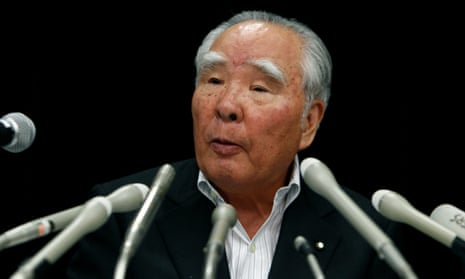Court case points to sizeable fees being racked up as firm seeks £3bn loan to try to avoid temporary nationalisation. Sewage floating down Britain’s rivers has become a pungent political symbol. But a recent court case over Thames Water’s debts was not concerned with the flow of water and effluent so much as the flow of money. Thames Water stands out amid the turmoil of the privatised water industry in England and Wales. Loaded up with about £19bn in debt, the company sought court approval to borrow as much as £3bn more from a group of existing creditors in a desperate attempt to avoid temporary nationalisation at the end of March.
![[Jasper Jolly]](https://i.guim.co.uk/img/uploads/2020/02/24/Jasper_Jolly.png?width=75&dpr=1&s=none&crop=none)
That process, known as special administration, would preserve the supply of water to 16m households and businesses in London and south-east England. Yet it would also create a massive headache for the Labour government and the wider water industry, reversing Margaret Thatcher’s privatisation more than three decades ago. Critics of the latest debt deal have argued for special administration for another reason: they say it would mean more money to fix leaky pipes and sewers, and less for the small army of firms that are racking up extraordinary fees during Thames’s troubles.
![[A Thames Water official stands in flood water in north London, after a 36-inch water main burst]](https://i.guim.co.uk/img/media/8944533237c6f1e5a6e16fd8a02490c585e6fa89/170_0_5116_3072/master/5116.jpg?width=445&dpr=1&s=none&crop=none)
The scale of the operation was on show in the high court last week, with more than 100 investors, bankers, lawyers and other advisers attending either in two packed courtrooms or via video call. Bond markets go unnoticed much of the time by most of the public. But when a company gets into deep financial trouble, as Thames has, legal battles can give a glimpse of just how interlinked English household water bills are with global finance.
![[Thames Water’s Deephams sewage treatment works is the fourth largest in England and serves around 1 million customers.]](https://i.guim.co.uk/img/media/5224632061d14b5d160c2fe84258789cfa39db0a/0_427_4145_2488/master/4145.jpg?width=445&dpr=1&s=none&crop=none)
The court hearing pitted two groups of potential lenders against each other. One, holding debt described as “class A”, is offering an interest rate of 9.5%, while the smaller group of “class B” hedge funds claims to have an 8% offer. The class A group wants to release the £3bn in tranches: an initial £1.5bn, followed by two lots of £750m. Charlie Maynard, a former investment banker who is now the Liberal Democrat MP for Witney in Oxfordshire, was allowed to intervene in the case for consumers’ interests. He described the class A offer as “ludicrously expensive debt”. Thames’s general counsel, Andy Fraiser, told the court: “You can come up with a plan which is cheaper but is not deliverable.”.
![[Protesters hold giant scissors with a ‘Public ownership’ message during the demonstration outside the Royal Courts of Justice calling on the court to block the Thames Water application for a £3bn emergency loan]](https://i.guim.co.uk/img/media/6da669f2e92899dbd25e080d34b8174df636d226/0_0_6000_3600/master/6000.jpg?width=445&dpr=1&s=none&crop=none)
Maynard’s legal team argued that two-thirds of the £1.5bn would “go into the pockets of debt investors and professional advisers”, including £245m in interest paid to those investors and more than £440m on various fees and discounts. The court case attracted considerable interest from a spectrum of global investors and banks, some of which traded the debt. Online attenders appeared to include the UK banks Barclays, Lloyds Banking Group and HSBC, Canada’s Scotiabank, National Australia Bank, plus the US banks JP Morgan and Goldman Sachs, as well as France’s BNP Paribas.
![[A pipe discharges into the River Thames in Henley, Oxfordshire.]](https://i.guim.co.uk/img/media/3223453ea03d2922ba475c68e4781fb89f621239/0_296_4500_2699/master/4500.jpg?width=445&dpr=1&s=none&crop=none)
Hedge funds and other big investors also appeared to be following. They ranged from large, relatively well-known investors such as Pimco, Corebridge and Millennium Management, to hedge funds including the London-headquartered Algebris and Insight Investment and America’s Diameter Capital, Bracebridge Capital and Centerbridge. Attendance does not necessarily mean that the companies have financial exposures to Thames Water, although the class A group also contains hedge funds such as Elliott Investment Management and Silver Point Capital, while the class Bs include Polus Capital and Covalis Capital. Neither creditor group would say which companies were members.
Cat Hobbs founded We Own It to campaign for public ownership of public services such as libraries, railways and water. She said the court should reject the debt deal in favour of special administration to limit the flow of money from Thames Water. “This is just a ‘money-go-round’, and they want to keep the money-go-round going as long as possible,” she said. “This would be a complete travesty for it to go ahead. The creditors’ interests will come very high up in the restructuring, and they wouldn’t in the special administration.”.
The interest payments may be high, but they do reward risk-taking. However, hundreds of millions of pounds will also flow out of Thames Water in the coming months in the form of fees for all those lawyers, bankers and public relations advisers. Thames has hired the “Magic Circle” law firm Linklaters and the restructuring advice firm Kroll. They were up against the class Bs’ law firm Quinn Emanuel, plus other experts.
Sign up to Business Today. Get set for the working day – we'll point you to all the business news and analysis you need every morning. after newsletter promotion. Edelman Smithfield is providing PR advice to Thames, while Hanbury Strategy is advising the class A group and Greenbrook Advisory is representing the class Bs. Thames Water has also hired the investment bank Rothschild & Co to try to find new equity investors to take over ownership, while rival Moelis & Company is advising the bondholders of its parent company Kemble.






















